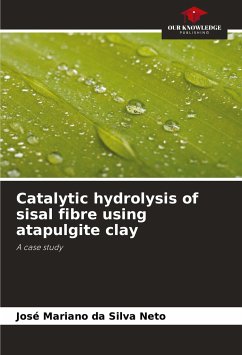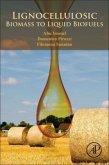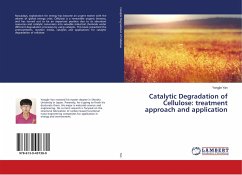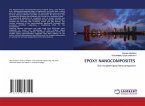The production of chemicals and fuels from lignocellulosic materials has received particular interest from researchers due to the negative impact of fossil fuels on the environment, as well as the growing concern about geopolitical oil issues around the world. Current research shows the production of second-generation ethanol from lignocellulosic materials as an alternative technology. Sisal fibre is a lignocellulosic material composed basically of cellulose (58%), hemicellulose (15%) and lignin (11%), making it an alternative for second-generation ethanol production in north-eastern Brazil, as it is a crop with a considerable carbohydrate content that can be degraded into fermentable sugars.
Bitte wählen Sie Ihr Anliegen aus.
Rechnungen
Retourenschein anfordern
Bestellstatus
Storno









